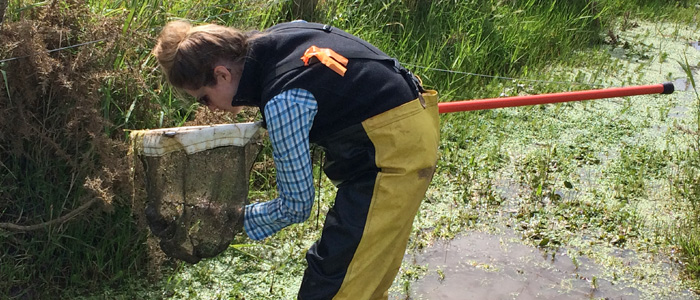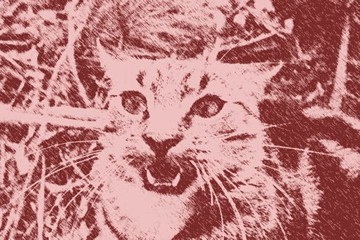
Research confirming Melbourne waterways as breeding grounds for a dangerous new amphibian invader has earned a group of local ecologists a national award after they stepped in where state and federal governments had failed.
“Ecology Australia used spotlighting, trapping, netting, electro-fishing and e-DNA analysis to look for and discover the ongoing presence of smooth newts, a toxic amphibian that has poisonous skin, just like the cane toad,” Invasive Species Council CEO Andrew Cox said today as he announced this year’s Froggatt Awards.
“Their research fills a knowledge vacuum created when state and federal governments walked away from the problem four years ago, and should be a catalyst for renewed action.”
The Froggatt Awards are named in honour of Australian entomologist Walter Froggatt, a lone voice in the 1930s warning of the dangers of releasing the cane toad into Australia as a control agent for beetle infestations in the sugar cane industry.
“Six years ago, a single smooth newt was found in a pool of water at a Melbourne building site,” Mr Cox said.
“This was the first time an entirely new amphibian order had been recorded outside of captivity in Australia and represented a real threat to Melbourne’s urban ecosystems.
“Since then state and federal governments have done nothing to stop smooth newts from spreading in Melbourne’s waterways. Even monitoring was halted by the former Victorian coalition government four years ago, two years after it was first detected.
“Ecology Australia’s research, carried out at their own cost as a community service, shows smooth newts have not gone away. They have survived in at least one previous site and have now been found at another site nearby.”
Part of the salamander family, smooth newts are likely to compete for food and habitat with native frogs and fish, and are potentially carriers of chytrid fungus, which has decimated frog populations worldwide. Native predators including birds, snakes and fish are also at risk if they ingest the potentially deadly skin secretions produced by the amphibian.
The location of the newt has not been revealed to prevent collectors from illegally collecting and keeping the newt, which increases the risk to the environment.
“The poor government decision-making that allowed smooth newts to continue breeding in Melbourne’s suburbs represents fundamental flaws in Australia’s national biosecurity response systems and the low priority given to stopping invasive species that harm the environment,” Mr Cox said.
“The Invasive Species Council will present Ecology Australia’s research results to the Victorian Government in an effort to persuade it to undertake an eradication program before this dangerous amphibian has time to colonise the southern waterways of Australia.”
About the Froggatt Awards
Invasive species have become one of the largest threats facing Australia’s natural environment, but their continued arrival and spread is all too often neglected as a conservation issue.
The Froggatt Awards are given to those who have made a major contribution to protecting Australia’s native plants and animals, ecosystems and people from dangerous new invasive species.
For comment
- Invasive Species Council: CEO Andrew Cox 0438 588 040.
- Ecology Australia: Bernadette Schmidt 0407 271 327.








